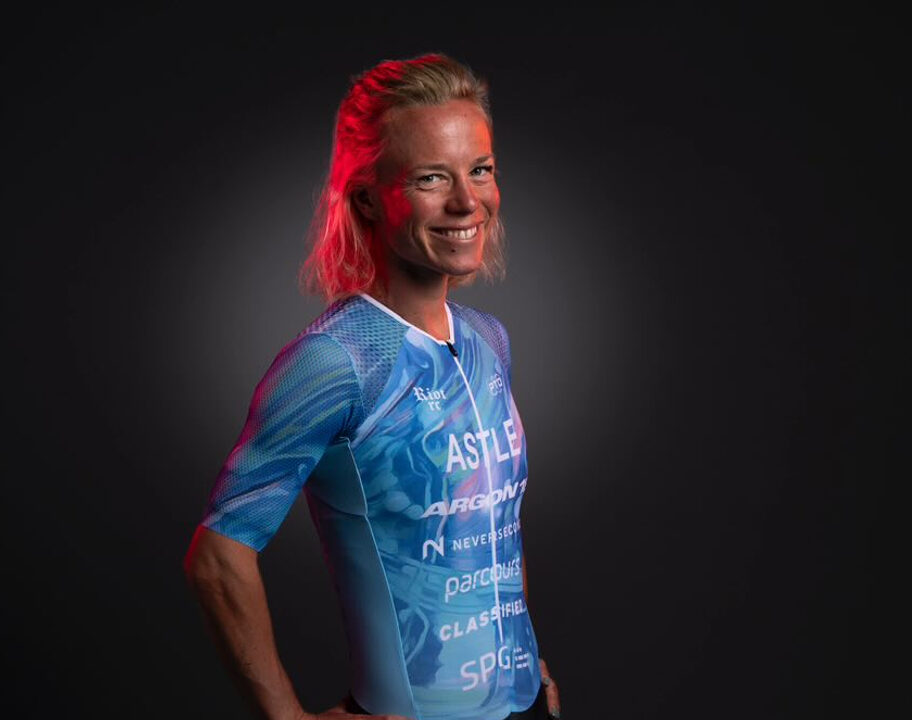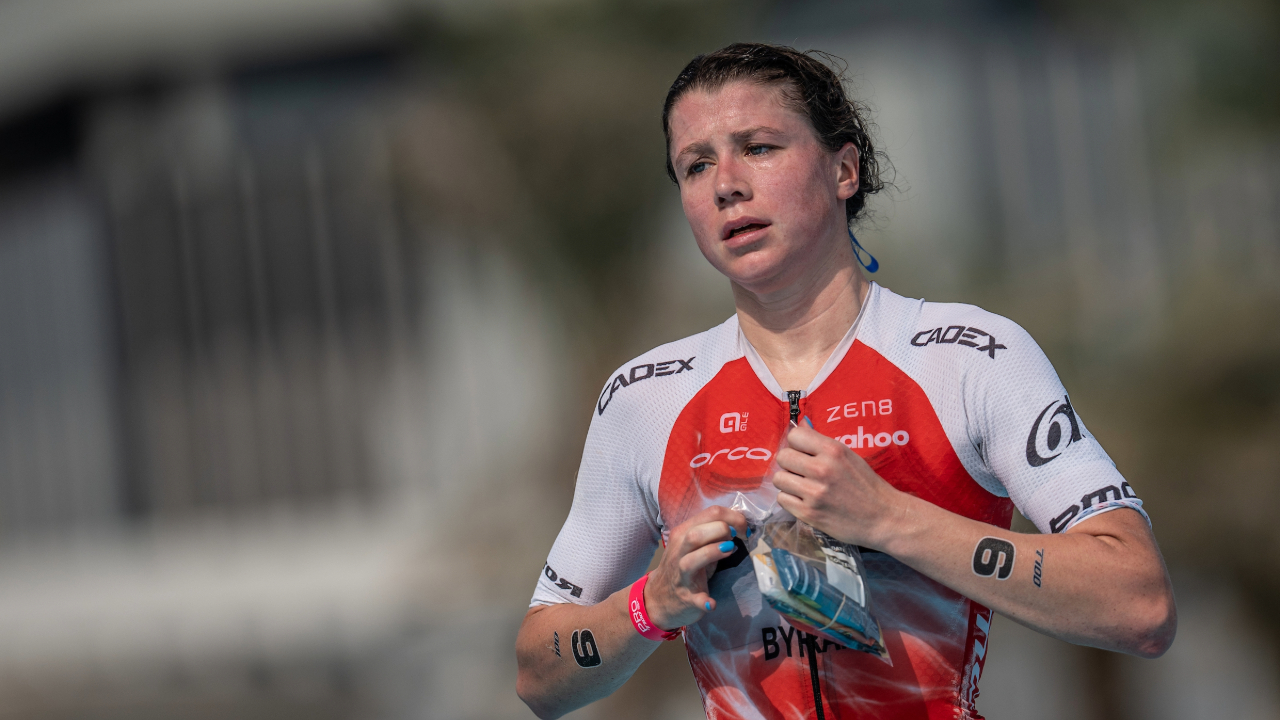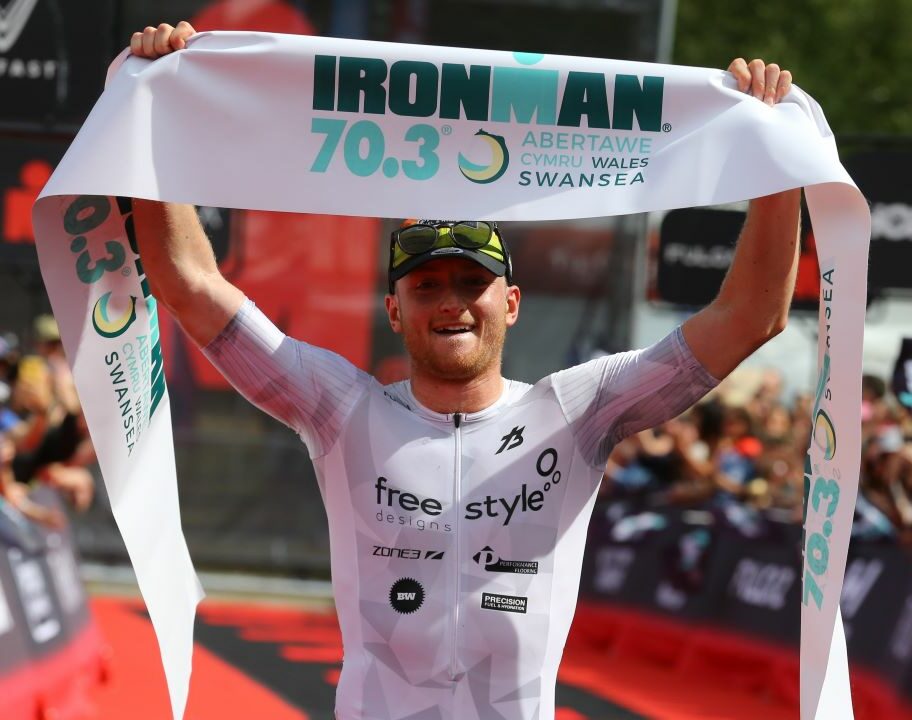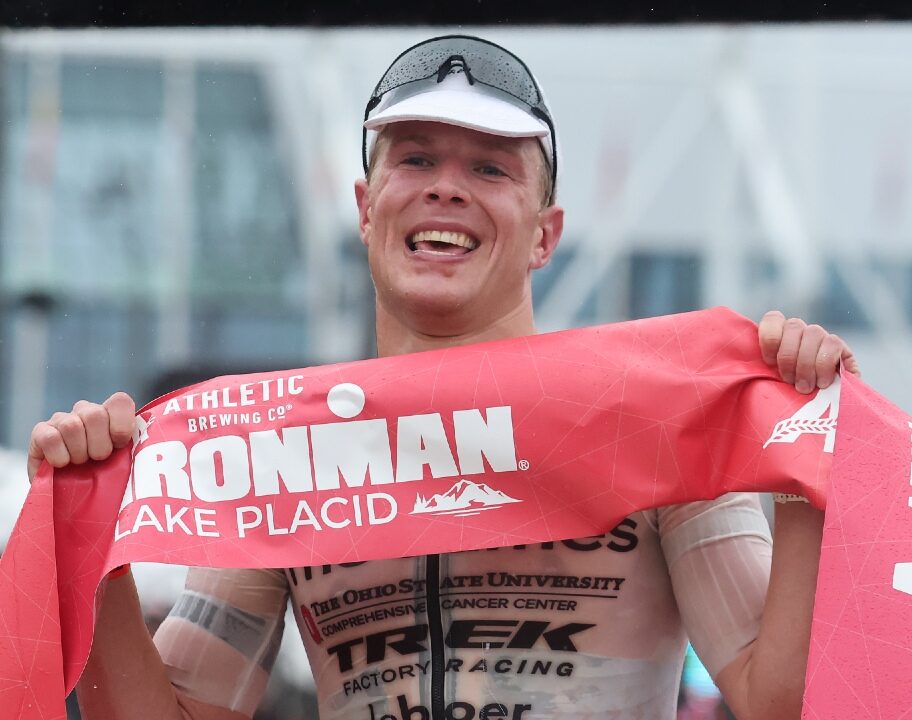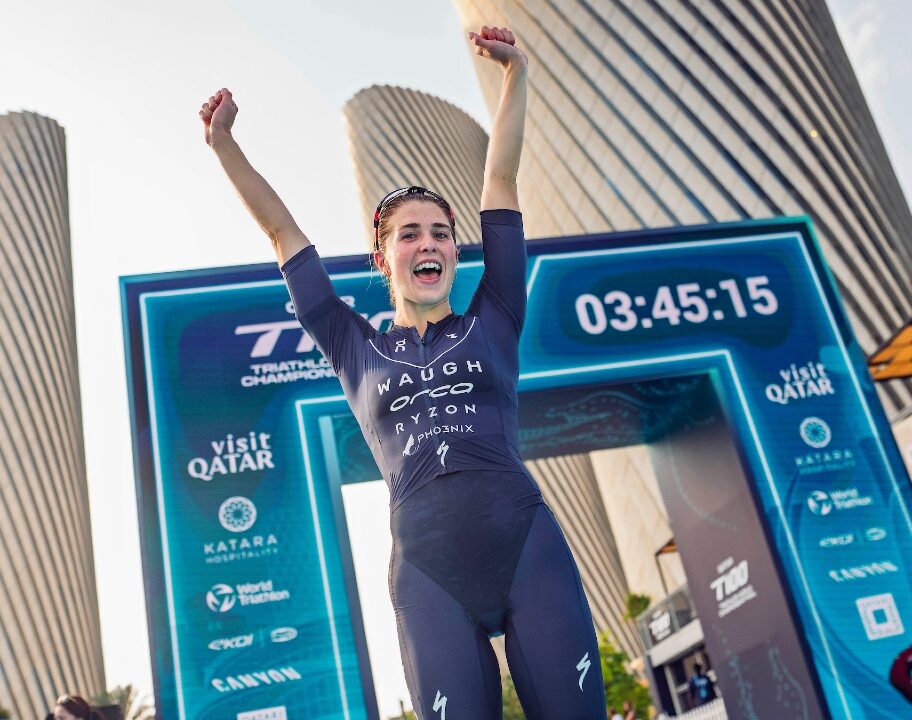The next Olympics triathlon cycle will start early next year and if the last couple of Games are anything to go by, at least one of the leading nations will have a thorny selection dilemma ahead of L.A. 2028.
Ahead of Tokyo the focus was on the United States, with Taylor Spivey looking desperately unlucky to miss out on selection. This year before Paris it was Team GB who had not one but two tricky calls.
Sam Dickinson got the nod over Olympic legend Jonny Brownlee for the men – and performed brilliantly in the French capital – while for the third and final spot on the women’s team it boiled down to Kate Waugh versus Sophie Coldwell.
Waugh would get the spot, Coldwell appealed and when she lost that felt that she had been “let down” by the federation.
Both women fully merited a place but four into three doesn’t go – so are there lessons to be learned?
We sat down with British Triathlon’s Performance Director Mike Cavendish, who was involved throughout and on the three-person selection committee, to chat through the process and look ahead to the next pathway to Los Angeles 2028.
Hardest decision in 20 years
When I asked him about the Waugh / Coldwell decision, he said: “It was an unbelievably difficult call. I’ve been doing this stuff for 20-odd years, athletics and triathlon, and this selection was the single hardest one I’ve ever had to do.
“We talked about the two athletes for a ridiculous amount of time. And that just showed how difficult it was. And, you know, not everybody agreed with everybody else’s opinions in the room, which goes to show how hard it is.
“Unfortunately, when you have a group of women, or if it was the other way around, men, who are so close and who all could go and perform fantastically, you’re going to end up with that scenario.
And I would forever rather have that scenario than not have those to pick.
“And the continual debate that we have to have is whether to have discretion, because that’s ultimately what causes the challenge – it’s opinion.
“Is discretion the right way of selecting athletes versus, in essence, making some sort of first past the post approach, which is what some other countries have done?
“If you look at the Germans, for example, it’s really clear, if you finish ‘x’ at this race, then it’s those that go. But my own personal view on that is that for as long as we focus on trying to win Olympic medals, either in the individual or relay, I think we have to maintain discretion.
“And a good example of that was Georgia Taylor-Brown. Had we not been able to use discretion in Tokyo, she wouldn’t have been in the team, and she won an individual silver medal. And you don’t know how the relay [where Team GB won gold] would have been without her in it.
“But we do know that had we not had discretion, she wouldn’t have been picked. So we’ve got really clear examples of why we need to do that.”
Potential for change
So while he believes in the overarching approach, Cavendish does acknowledge there’s still plenty to discuss and possibly fine tune.
He added: “Undoubtedly there’s things that we need to learn and there’s potentially things that we need to change. Were we trying to be too clever, too intricate with our wording and selection policy? Did everybody have the same view of the words that are written down?
“That’s probably what we’re going to get to, and we’ve got to review that and really try and figure out if we need to change things moving forwards.
“But I think ultimately we’ll probably still end up back in the same place; that unless athletes can hit the really high bars that we set a year out – and we set them really high for a reason – then we’re always going to end up having to probably make some discretionary decisions between people that are ultimately really, really high-quality athletes with so little to choose between them.”
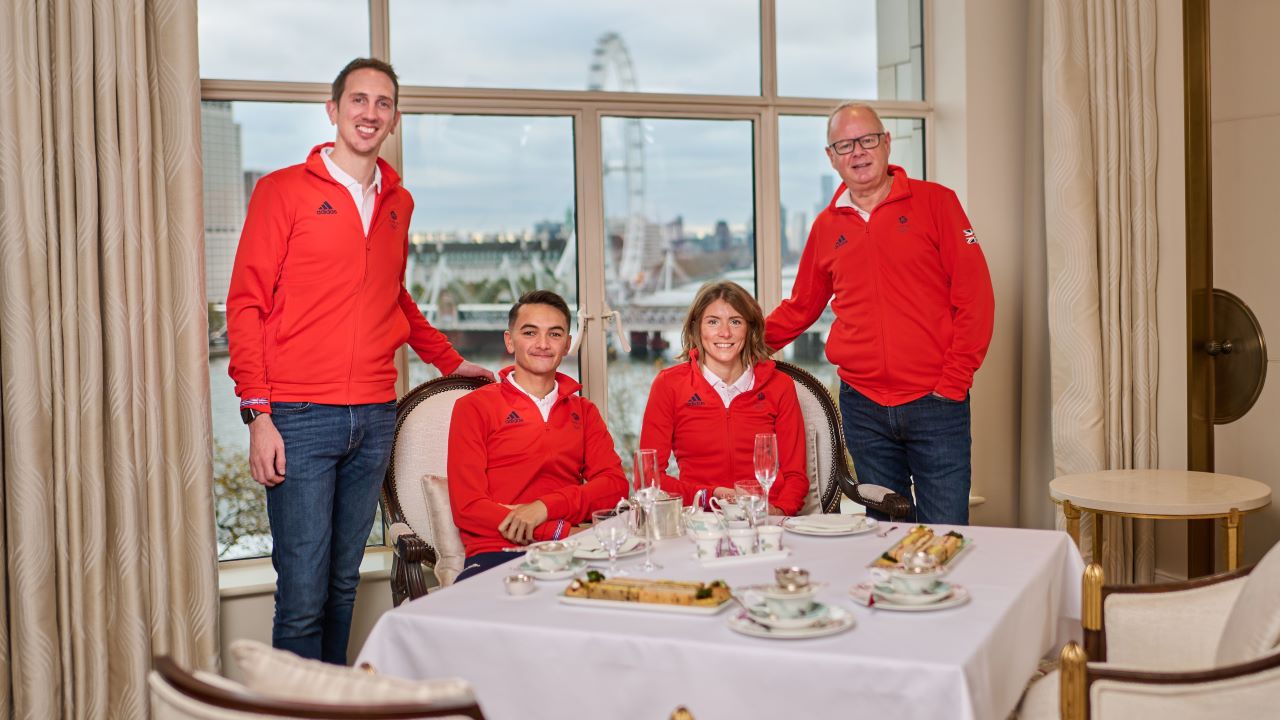
All about the relay
Drilling down into the men’s call between Dickinson and Jonny Brownlee, I wondered if everyone was crystal clear that the decision was going to be based on the Mixed Team Relay rather than the individual race?
“In many respects that decision was significantly easier because our policy wording was very straightforward,” said Cavendish. “If you’re not on or around World Series podiums in the 18 months leading up to the Games, we therefore ultimately do not believe you’re a medal contender.
“And Jonny’s got this ridiculously successful past, but he just hadn’t been on World Series podiums and Sam’s never quite got there. So it was always really clear, as far as I’m concerned anyway, that we were then selecting on the basis of who we felt could do the best job as a pilot, if that’s what we needed, but particularly around the relay. And the way we ended up selecting – where we got to – was predominantly based on who do we think is going to be able to do a job on leg three?
“Because that was always where we were planning on Jonny or Sam or whoever else we think could do the best on that leg. Which is why the last races that we got them to do was all very much geared to them being able to show that to us.
“And of course it didn’t help having so few relays in the build-up. We’d lost Montreal in 2023 and the test event relay was a duathlon. We lost Abu Dhabi and even the Sunderland race last year there were obviously some water quality issues and we had to change people in between that.
“We’ve had so, so few relay opportunities that we were trying to have to figure out different ways of getting the information that we needed because we couldn’t just look at relays. Jonny went out to Abu Dhabi only to do the relay. He wasn’t entered for the individual. He was there specifically for that. So when that came out, we were generally at a bit of a loss.
“So few opportunities presented themselves over the last 18 months that we just had way, way less data to be able to make really, really clear decisions, particularly around those athletes who were looking to do the relay.”
Taking his chance
But when all was said and done, Dickinson performed heroically in Paris, starting with a selfless individual race where he pulled out early on the run having done what he could for Alex Yee, who would go on to win gold.
And Cavendish points out: “I remember seeing on social media lots of the commentary about him not finishing the 10K and lots of criticism. And I won’t lie, it made me pretty frustrated, pretty angry.
“Winning Olympic medals is incredibly hard. And we had a clear plan for any athlete who was only going to be selected as a relay kind of specialist and what that would need to look like.
“And he committed to that plan from the outset. And his race, he knew his race was always that relay and he wanted to come home with a medal. And there’s no way we would have come home with a medal if it wasn’t for the leg that he put in.

“They were all brilliant. Obviously Alex, Georgia and Beth [Potter] all had their Olympic medals but they absolutely went into that race wanting to make sure that they put in everything they could so that Sam had the opportunity to deliver the performance we knew he was capable of and he stepped up.
“From my perspective, his was the leg of the entire race. In my view, he and Taylor Knibb [who anchored Team USA to silver in a thrilling three-way finish] were the two that made the real differences for the two teams.
“And Sam was absolutely outstanding. Now, no one can know for sure whether he had done the 10K in the individual, whether he would have delivered that performance, but we’re pretty confident that we set him up in the right way to be able to deliver that 20 minutes effort that we knew he was capable of.”








